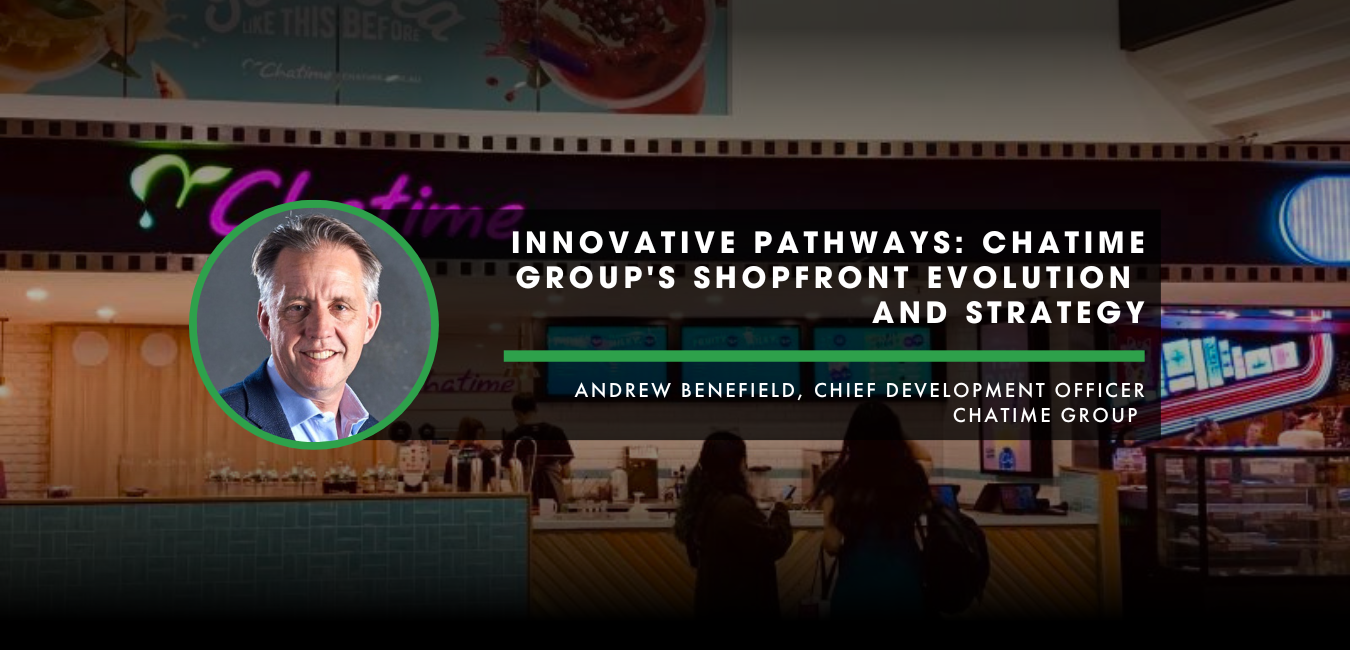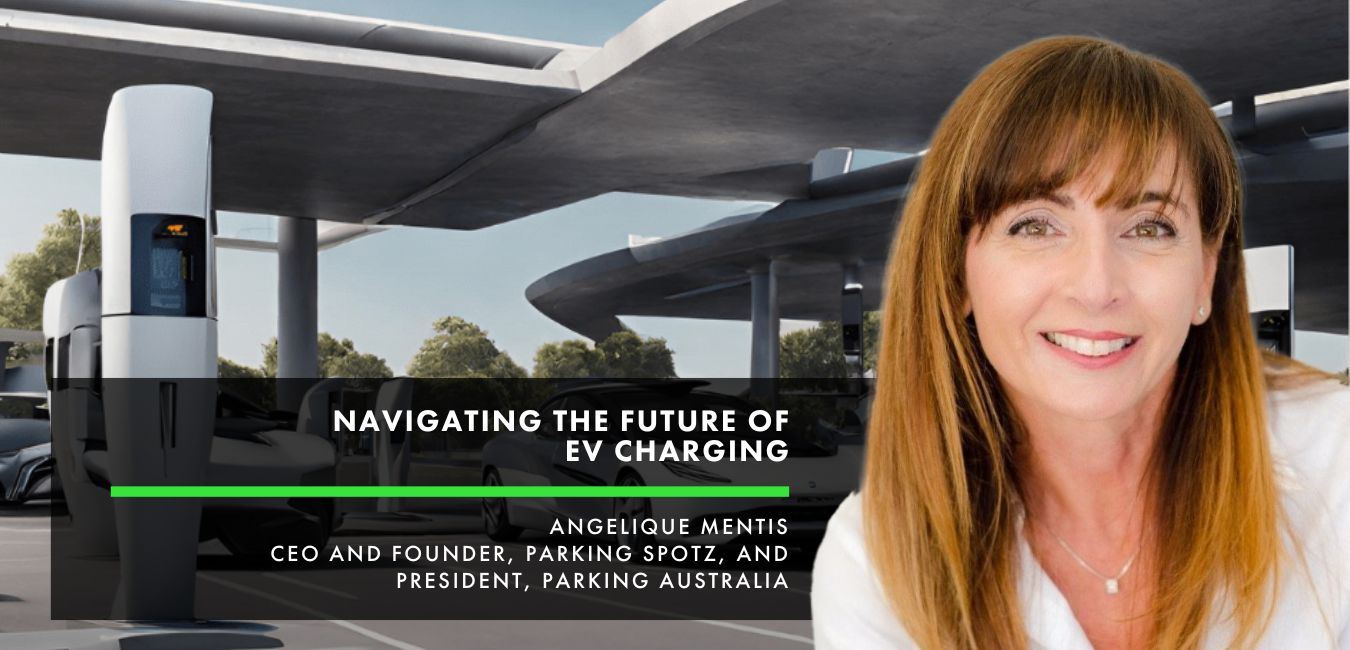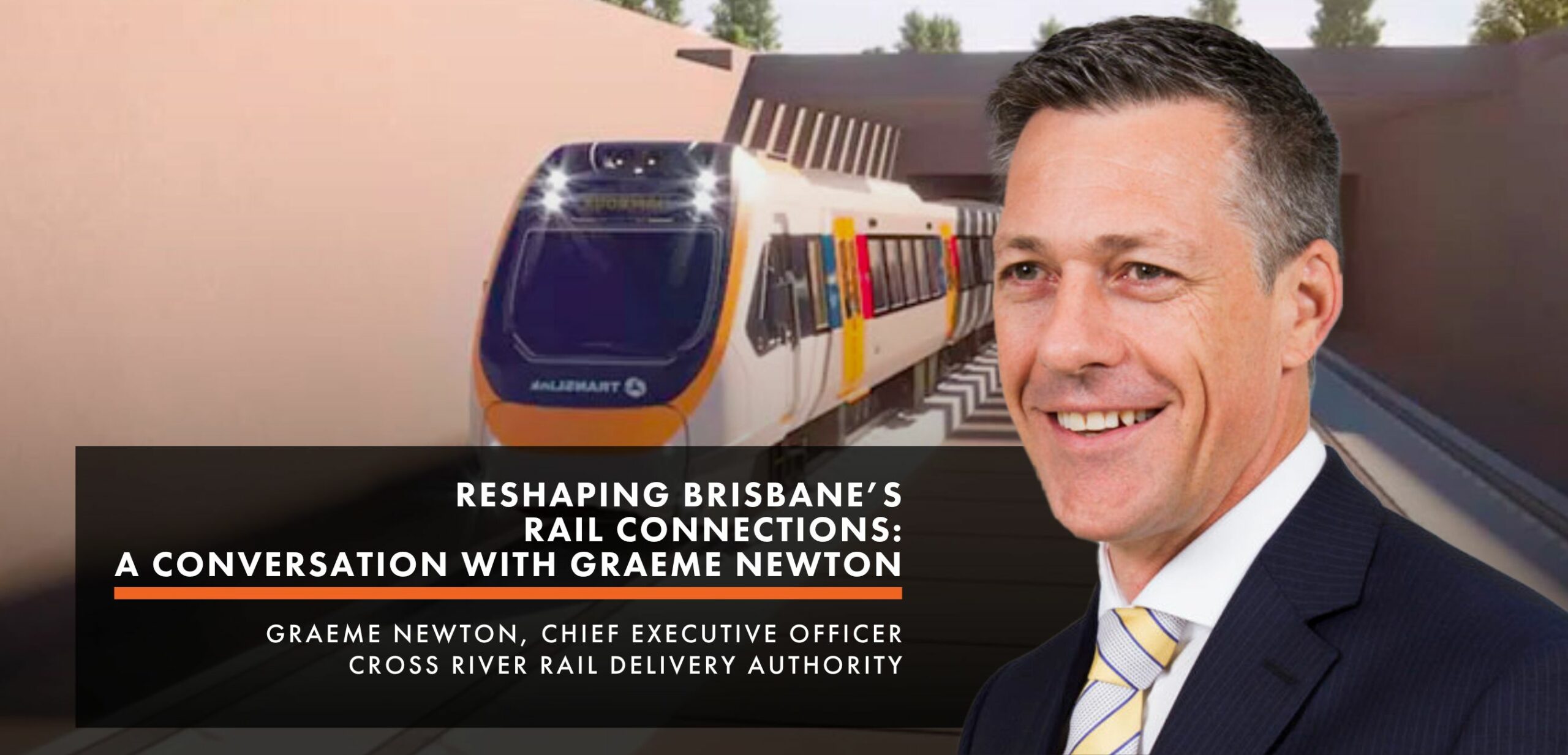FuturePlace Interview Spotlight, Andrew Benefield
FuturePlace recently interviewed Andrew Benefield, Chief Development Officer at Chatime Group, where he discussed the Chatime Group’s forward-thinking strategies and dynamic initiatives. From redefining the beverage landscape beyond bubble tea to pioneering inventive shopfront formats and leveraging data analytics for strategic placement, Chatime is breaking new ground. The discussion delves into the brand’s adaptive approach to leasing strategies amid the changing retail landscape post-COVID, exploring innovative partnerships and shorter-term arrangements. Discover how data analytics are driving Chatime’s shopfront optimisation and the challenges and opportunities in collaborating with property managers to attract foot traffic.
FuturePlace: Can you tell us about Chatime Group’s shopfront strategy for 2024 and beyond?
Andrew Benefield: Chatime is a fun treat often enjoyed after a meal or later in the day. So, we’re finding increasing success in getting into entertainment and lifestyle precincts and areas that will certainly trade later and complement meal offers and other entertainment activities so we will be continuing our push into those kinds of areas. We’re also looking at a number of different operating formats that will make the core range of Chatime available to a much wider group of customers. In terms of malls that can include everything, we were piloting a self-ending concept using trailers or mobile facilities to do pop-ups in containers and other sorts of small formats that will enable us to be a bit more unique and innovative about what we do in those kind of spaces.
FuturePlace: How are you responding to increased competitiveness in the bubble tea market?
Andrew Benefield: I guess the key is we don’t focus on the bubble tea market. We consider ourselves to be a beverage brand and offering a range of beverages. One of our successes has been able to move beyond the traditional bubble tea customer and in fact we now serve everyday many more non-asian customers than perhaps what people would consider the traditional consumer. And we’ll continue to stretch ourselves in that area by introducing new drink flavours and new types of drinks that really round out the beverage offer and enable us to move into demographics and geographies that are not traditional bubble tea-type environments.
FuturePlace: How have your leasing strategies evolved in response to the changing retail landscape Covid downtowns and evolving custom consumer demands. Have you explored shorter lease terms, flexible arrangements or innovative partnerships?
Andrew Benefield: Well, we certainly tried to. I’d have to say that not necessarily supported there are some great landlords out there that are quite creative and there’s a number that is still very traditional. So, we are looking as I said at other formats, we’re looking at getting outside onto strip locations where we can’t actually make an arrangement work inside a center. What we have been successful with, is particularly in CBD areas, is to move to percentage rental deals. I think as both landlords and tenants as we’re watching CBD’s, not only recover from COVID but also transition to the hybrid working model and increased apartment dwellers. That’s where we find that you know, we’ve moved to different strategies and probably where the landlords have been the most accommodating in terms of trying to move to those arrangements.
I think you know that is one of the challenges for the whole industry is that we need to be thinking about the landlord and tenant relationship and how it’s structured and what the basis of deals are into the future in a different way. It’s almost like we’re still stuck in that landlord tenant fixed term fixed increase type environment, whereas if you look at so many other industries that have been disrupted with subscription models and people wanting to move in quickly and move out. I think there’s a whole lot of room that we can work with our partners and our landlords on, what does it look like? How do we do it differently? Yes, we’re facing a new market of potential franchises and business partners that are used to operating in the modern world on subscription models, short terms and the need for change. They want to be able to move quickly and I think we need to think about the industry and say how do we structure it differently so that people can move in and out and keep the offers fresh and lively without penalising either party. You know it’s got to be a mutual relationship.
FuturePlace: In what ways have shopping center owners or property managers supported your shopfront strategy to attract consumers? And can you provide examples of collaborative efforts or initiatives that have been successful in driving foot traffic to the store?
Andrew Benefield: This is a difficult question for me to answer partly because it’s probably our marketing and operations departments that worked more closely on a day-to-day basis with landlords and I see some really good marketing initiatives from landlords to drive traffic and we’ll participate in those and try to help out. Being a fun and attractive brand, we can often make offers to customers that will be fed through, but at a leasing and longer-term strategy viewpoint haven’t to be honest seeing that much cooperation going on. So, I think that’s another big area of opportunity.
FuturePlace: So, how have you utilised data and analytics to inform and optimise your shopfront strategy?
Andrew Benefield: Yes, I mean of course like everybody, you know we use a variety of mapping services and there is a wealth of data out there. But where we’ve been really successful now is overlaying that with our own data. So, we recently worked with Geotech to overlay the sales of our goods. We have a on-shelf product in Woolworths supermarkets and we’re able to overlay the sales of those over the various demographic and other models and came up with some really quite surprising locations where Bubble Tea, if you want to call it that, was actually purchased in high numbers through Woolworths supermarkets without any surrounding retail bricks and mortar to support it, so that was quite exciting. We also now have well over a million Chatime app users who have recorded a postcode as to where they’re based and again overlaying that onto those kinds of models really enables us to see where we need to slot stores in to meet demand from people that have signed up and want to be loyal members. So that has been a key change in what we’re doing is certainly enabled and helped by a number of services that are now able to take that data and incorporate it with the more traditional stuff to overlay it. And then of course, there’s the newer stuff coming through on mobile and other card data which is helping us.
FuturePlace: There has been talk lately about Chatime closing stores. How are you looking to work with the center to avoid this happening?
Andrew Benefield: Some cases it’s just unavoidable, but we’re not closing many stores. We were probably misquoted on that a few months ago, but I think every network closes some stores every year. We do look at every store on renewal and ask, is it going to be sustainable moving forward? And if it doesn’t suit the landlord for us to stay on a rental, that’s commercially viable for us, then we will exit and it’s sad sometimes.
But demographics move, people change around. Sometimes it’s a Chatime issue that the demographics are moved and perhaps we’re not making the sales. Sometimes, it can be a landlord issue that they haven’t kept the center up or something else bright and shiny comes up close by and there’s an opportunity to move. So, I think that again comes back to this notion of fixed terms and locking in and on fixed reviews. I think that’s where the whole industry has an opportunity to pull that model apart and put it back together again and say to how do we make it easier for people for both the tenants and landlords to transition offers to make sure that various that they’re keeping relevant to the relevant customers.
So, it may be that we move out quite easily and someone else that’s more suitable for that demographic has an easy move in to make it all work.
MALLS OF THE FUTURE SUMMIT
Andrew will be speaking at the Malls of the Future Summit, taking place on 6 March 2024 in Sydney.
It brings together the brightest minds in the industry to explore the continued evolution of bricks and mortar retail in a fast-changing world. It will explore the factors driving investment in innovative new-build and redeveloped shopping precincts that are going beyond the norm to offer a more personalised and sensory customer experience that creates reasons for local communities to visit, stay longer, feel connected and return time and time again.







